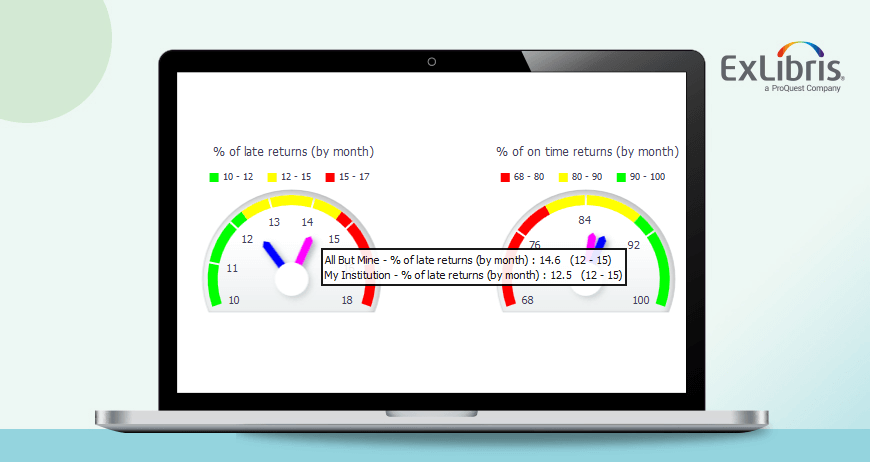Dani Guzman, Product Marketing Director, Ex Libris
At the start of this new year, we note both how libraries provide access to the past and how they are adapting (or should) to the future. From examining news from 150 years ago through current ebook cataloging to tomorrow’s virtual reality, the modern library has a role to play and capabilities to explore to their fullest. How? Read on…
Artificial intelligence researchers from the University of Bristol in the United Kingdom examined over 35 million digitized articles from the British Library’s newspaper collections from 1800 to 1950 using Big Data methodologies. Their goal, according to an article in Scientific Computing, was “to establish if major historical and cultural changes could be detected from the subtle statistical footprints left in the collective content of local newspapers.” Find out if they succeeded >>>
The Research Information website published some interesting results from the Altmetric Top 100, which ranks research papers that have generated significant international online engagement in news and social media during the course of 2016. Several of the top ten papers touched on health, with former President Barack Obama’s paper on the Affordable Healthcare Act in the medical journal JAMA receiving one of the highest scores ever. The results were also analyzed by country of origin, with international collaborations accounting for about half of the leading published research. Read more here >>>
Over 180,000 digitized manuscripts, maps, photographs, sheet music, lithographs, postcards, and other images in the public domain are now available online courtesy of the New York Public Library. The Library has taken the collection to the next level, in terms of interactive librarianship, with search, sort and gamification features. A report in The Verge, an online tech journal, notes that digitization “is all the rage among libraries and museums these days….” Take a look here >>>
In another interesting Research Information online article, an initiative undertaken by Cambridge University Press to improve the discoverability of library resources is described. The CUP has updated or enhanced metadata and MARC (machine-readable cataloging) records for almost all its collections, with more to come in 2017. Concetta La Spada, library data analyst at Cambridge University Press, commented: “I hope this project will help to make the lives of librarians and cataloguers easier, so they can get on with the work they need to be doing.” Read more about the initiative here >>>
After making images and resource collections more accessible, libraries need to consider the implications for copyright. The Library of Congress issued a call for input on choosing the next Register of Copyrights (the last one resigned in October), who “will influence the changes that the United States copyright system is weathering….” Four library copyright experts told The Library Journal what they see as important considerations for the incoming Register of Copyrights and for the Library of Congress. Find out what they said here >>>
Looking a little further ahead, Carl Grant, Associate Dean for Knowledge Services and the Chief Technology Officer at the University of Oklahoma Libraries, advocates interactive virtual reality to enrich the library experience. He writes, “it not only builds traffic in the libraries, it positions the library as the point to engage with, learn about and experience leading-edge technologies.” But more importantly, in Grant’s view, virtual reality can enhance learning and knowledge in some dramatic ways. Read about why and how here >>>
You might also be interested in

Alma
Analytics
May 18, 2021 |
3 min read
Benchmarking Your Library on a Global Scale
Analytics
Community
Library Discovery
November 16, 2017 |
0 min read
Ex Libris Experts Talk: Brent Cook on Library Analytics
Analytics
Community
Library Discovery
November 16, 2017 |
0 min read
Ex Libris Experts Talk: Brent Cook on Library Analytics
Great library experiences start with software
Download whitepaper
Analytics
Community
Library Discovery
November 16, 2017 |
0 min read
Ex Libris Experts Talk: Brent Cook on Library Analytics
Analytics
Community
Library Discovery
November 16, 2017 |
0 min read
Ex Libris Experts Talk: Brent Cook on Library Analytics
Analytics
Community
Library Discovery
November 16, 2017 |
0 min read
Ex Libris Experts Talk: Brent Cook on Library Analytics
Analytics
Library Discovery
October 26, 2017 |
0 min read
Ex Libris Experts Talk: Christine Stohn on Big Data Analytics
Analytics
Library Discovery
October 26, 2017 |
0 min read
Ex Libris Experts Talk: Christine Stohn on Big Data Analytics


